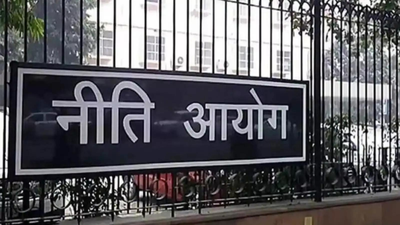Border clashes escalate: Afghanistan blames Pakistan for closures; $200 million trade loss prompts search for new routes

Afghanistan’s Taliban government on Wednesday said that it is seeking alternative trade routes through Central Asia as border closures with Pakistan continue to cripple commerce and worsen economic losses.Acting commerce minister Nooruddin Azizi said that the country is losing nearly $200 million every month due to the shutdown of key crossings with Pakistan, accusing Islamabad of “politically motivated” restrictions. “Pakistan has frequently created obstacles, especially during the fruit export season,” Azizi said during a session in Kabul. “These closures are without any foundational or logical basis, and they are damaging to both countries.”
At least five major crossings, including Torkham and Spin Boldak, have been closed for more than a month following a sharp deterioration in relations. The closures have disrupted trade, halted exports and caused significant losses for Afghan businesses that rely heavily on overland access to Pakistani ports, according to Afghanistan news channel Amu TV. Calling the Pakistan route “high-risk,” Azizi said Afghan traders have repeatedly suffered losses due to arbitrary decisions by Pakistani authorities. He urged merchants to strengthen economic ties with Tajikistan, Uzbekistan and Turkmenistan instead.“We are actively working with northern neighbors to find reliable trade alternatives,” he said. Azizi added that the Taliban government would only trade with Pakistan on the basis of “mutual respect and equality.”“There will be no trade under duress. We are under no obligation,” he said.Azizi also accused Pakistan of exploiting Afghan traders and using commerce as political leverage. “Our traders should not be tools in Pakistan’s hands,” he said. “If Pakistani traders want access to Afghan markets, they must handle marketing and outreach themselves. We will not allow one-sided conditions.”
Talks collapse amid growing hostilities
The minister’s remarks came days after Pakistan’s defence minister Khawaja Asif declared that dialogue between Islamabad and Kabul had collapsed. He said that the negotiations had “entered an indefinite phase” after two rounds of talks in Istanbul failed to reach an agreement.The collapse in talks follows weeks of cross-border clashes that have killed civilians and soldiers on both sides, marking the most serious escalation in years. The violence began after explosions in Kabul and Paktika on October 9, which the Afghan government blamed on Pakistan.Pakistan has neither confirmed nor denied involvement, but its military later said it had carried out retaliatory strikes targeting militant hideouts and army posts across the border. Military spokesman Lt Gen Ahmad Sharif said more than 200 Afghan soldiers and 100 militants were killed in the strikes, while Afghan officials claimed only nine soldiers had died and accused Pakistan of killing civilians.Afghan spokesman Zabiullah Mujahid said 45 civilians were killed and over 100 wounded, while claiming 58 Pakistani soldiers had died, figures Islamabad disputes, saying 23 soldiers were killed.
Economic and political fallout
The clashes has coincided with rising economic strain inside Afghanistan. With border routes blocked, exports have fallen sharply, inflation has increased and traders face growing uncertainty.Pakistan remains one of Afghanistan’s largest trading partners, with annual trade worth over $1.5 billion before the latest closures. But with relations deteriorating, Afghan authorities are now encouraging exporters to redirect goods through northern corridors linked to Central Asia.“Our traders should not be tools in Pakistan’s hands. If Pakistani traders want access to Afghan markets, they must handle marketing and outreach themselves. We will not allow one-sided conditions,” Azizi said.The two countries share a 2,611-kilometre frontier, known as the Durand Line, drawn during British rule in 1893. Afghanistan has never formally recognised it as an international border, a long-standing source of friction that continues to fuel political and security disputes.Despite mediation efforts by Qatar and Turkey, both sides remain entrenched, with no sign of an immediate resolution. Analysts warn that if the border deadlock persists, it could deepen Afghanistan’s economic crisis and further isolate the landlocked nation.












